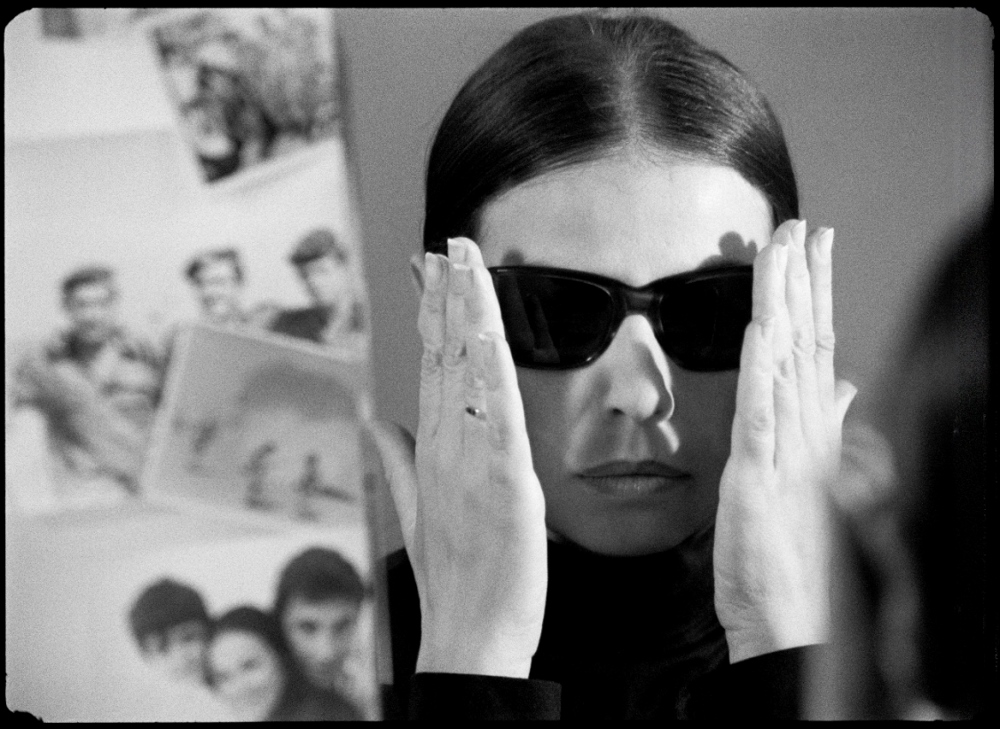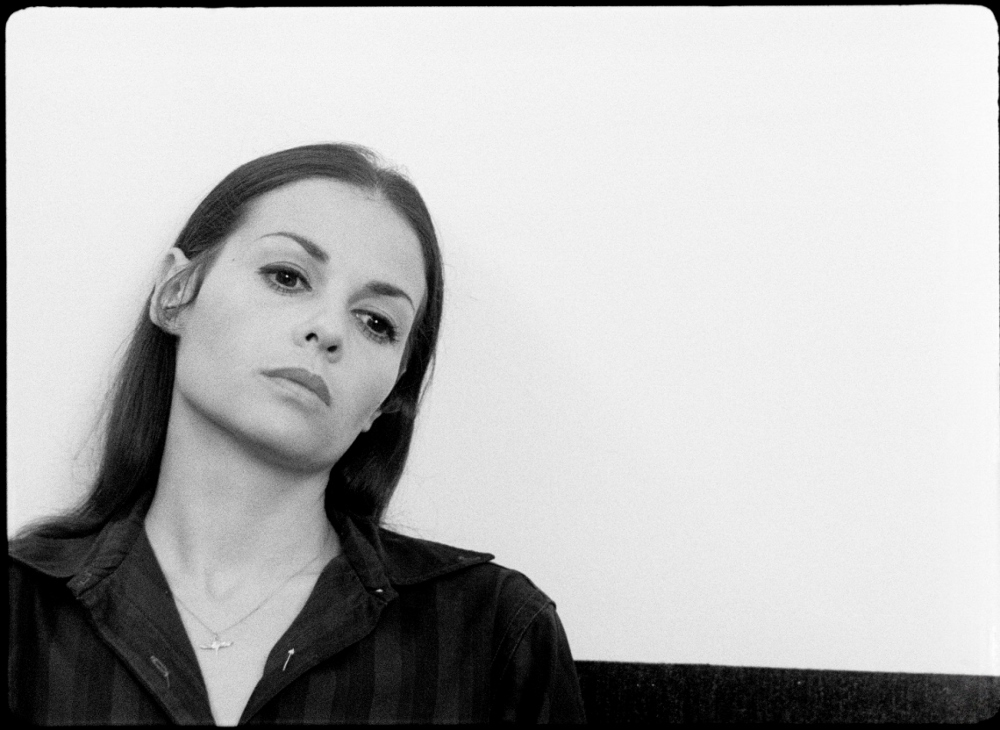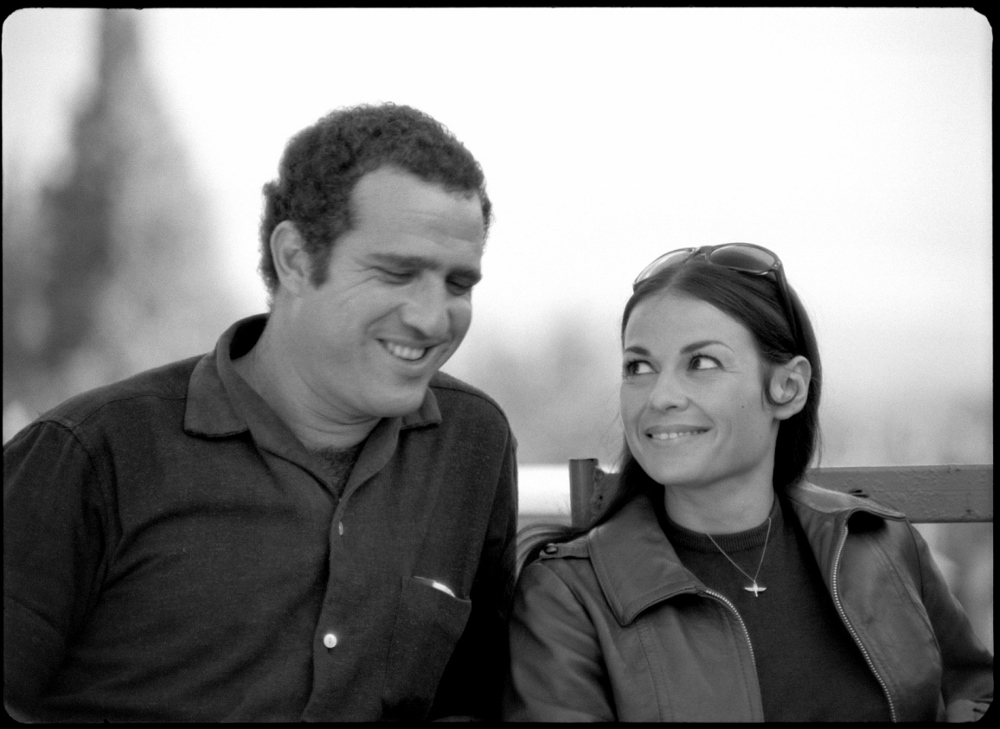
In Israel, the connection between individual and collective experience, personal and political history, private and public, is so intense, so deeply rooted and tangled, that it is almost impossible to separate the two. It’s a challenge for filmmakers, regardless of the path they choose. Matzor is the rare film that conveys both with authenticity and emotional resonance. Focusing on a woman whose paratrooper husband was killed in the Six Day War, Matzor, directed by Gilberto Tofano, produced by Yaakov Agmon, starring Gila Almagor, Dahn Ben Amotz (who co-wrote the script with Tofano) and Yehoram Gaon, held its world premiere at the 1969 Cannes Film Festival, and was selected to represent Israel at the Academy Awards that year. Presented in this year’s Cannes Classics, in a newly restored print, Matzor is a classic in every sense of the word, reflecting the history and culture of its time, while remaining intellectually, aesthetically, and emotionally compelling, as well as being staggeringly relevant to our own time. There will be a special screening of Matzor at the Jerusalem Film Festival 2017.

Conceived and created in the aftermath of the Six Day War, the film diverges from the prevailing public narratives of victory and euphoria to tell an intimate story of loss from the perspective of an individual. Tamar (Gila Almagor), whose husband Amos was killed in the war, is struggling to cope. Yet not only does she have to contend with her own feelings of grief and loss, and the difficulty of raising her young son Uri who has been left fatherless, she is also confronted with the scrutiny and expectations of those who place her in the role of “war widow.” This intensely private pain has made her, in the eyes of the community, public property. Matzor means “siege” in Hebrew, and Tamar is in a sense, under siege, as is the entire country.
The film’s premise originated with Gila Almagor, who sketched out her ideas like a storyboard, shared them with Yaakov Agmon, and the project was launched. Gilberto Tofano, a documentary filmmaker from Italy who came to this country with great empathy for the Israelis, came on as director and worked on the screenplay with Almagor. Dahn Ben Amotz joined the project as a co-writer, writing the dialogues, and then was also cast as David, the gentle driver of a bulldozer, whose chance meeting with Tamar is a catalyst for change. Yehoram Gaon stars as Eli, a career officer in the military, who was Amos’ best friend, as well as his second in command. Eli takes Tamar under his wing, making sure to visit often and invite her to join on outings with their group of friends. Yet this sense of responsibility comes with a certain sense of entitlement to guide Tamar’s choices. There’s a fine line between caring and controlling.

The film’s artistic choices are breath-taking, creating a structure that connects Tamar’s individual experience to the collective Israeli experience. The entire creative team of this film – Almagor, Agmon, Tofano, Ben-Amotz and the film’s DOP David Gurfinkel and editor Danny Shik have created a masterpiece. Shot in black and white, with the ‘real time’ of the narrative interspersed with newsreels and the occasional view of a character’s inner world, an equivalence is created between these different modes of perception, the subjective and the objective, the fictional and the documentary. The film opens with the familiar beeps announcing the hourly newsflash on the radio – the toll of the dead and wounded -announcements that are heard throughout the film, underscoring the overwhelming presence of the conflict. The conflict and its consequences permeate every moment and aspect of life, the film accurately depicts the inevitable addiction to the news, and the sense of claustrophobia, paranoia and helplessness evoked by the incessant reckoning of loss.
Almagor is stunning and very striking as Tamar, conveying her vulnerabilities, strengths, and conflicting feelings, as well as her intelligent perception of her situation. In one of the film’s many powerful scenes, Tamar, yearning for distraction, wanting to feel alive again, to feel ‘normal’, goes on a shopping spree on Dizengof (trendy then, and again now). Scenes of mod 60s era Tel Aviv, opening up to a wider world and its sensibilities, with the music, “flower power” slogans, miniskirts and Pete Seeger’s anthemic rendition of We Shall Overcome. Yet these scenes are cut with Tamar’s vision of her husband’s funeral, and of all the women alone in cemeteries, mourning their dead.
The film reflects many aspects of Israeli society of its time, tightly-knit social groups with friendships that often began in early childhood, a very couples oriented society, lively late-night conversations over pita and hummus, picnics, male bonding through shared military experiences, and the influence of the military on social hierarchy. The film also shows an Israel that is already changing, as more families bring television sets into their homes (Israeli television broadcasts began in 1966), and a very insular and relatively isolated society begins to open up to the rest of the world. It is significant to note that although the focus is on Tamar and her very personal story, and by extension, on Israeli Jews, a variety of people are visible, although understandably, to different degrees. A deliberate choice was made to include a wounded Arab fighter in a hospital scene, and a cemetery scene shows two Arab women mourners. It is as much a group portrait as it is the portrait of an individual. Everyone is caught in the vicious cycle of violence.
Matzor concludes as it began, in a manner understated, yet riveting, making a statement as bold as it is heartbreaking.
The newly restored print of Matzor was initiated by the Jerusalem Cinematheque – Israel Film Archive, in partnership with United King Films and the support of the Rabinovich Foundation. The original 35 mm black and white negatives were scanned in 4K by Cinelab Romania and digitally restored in 2K by Opus Digital Lab in Tel Aviv. Restoration and color grading was lead by Ido Karilla, supervised by DOP David Gurfinkel.
Matzor will be screened on Wednesday, July 19, 2017 at the Jerusalem Cinematheque, in Cinema 1, at 17:15. Tickets may be ordered via this link.
Matzor (Siege) Israel, 100 min, 1969, Hebrew with English subtitles
Director: Gilberto Tofano; Producer: Yaakov Agmon; Screenplay: Gilberto Tofano, Dahn Ben Amotz, Gila Almagor; Cinematography: David Gurfinkel; Editor: Danny Shik; Music: Yohanan Zarai; Cast: Gila Almagor, Yehoram Gaon, Dahn Ben Amotz.





